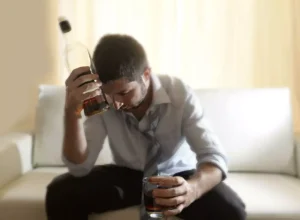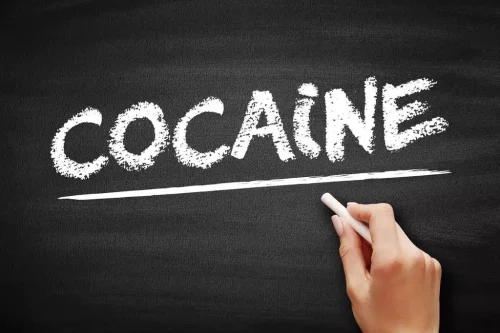
Severe symptoms and reactions can occur, and working with a professional can help a person avoid or manage these symptoms. Other therapies, including counseling and cognitive behavioral therapy (CBT), may be helpful for people looking to manage symptoms without relying on other drugs. During the acute withdrawal phase, doctors may monitor the person and recommend other drugs to control problematic symptoms.
Management of stimulant withdrawal

The relationship between hypnotics and cancer was expanded upon by Kripke et al. They found a 35% increased chance of developing a new non-melanoma cancer in users of hypnotics [48]. In agreeing with some of the studies above, there was also a 4.6-fold increase in the hazard of death in patients on hypnotics over 2.5 years [48]. This is more significant than the study by Weich et al. [47] which found a 2-fold increased hazard of death in 7 years. It was also reported that the risk of death in patients using less than 18 pills per year is increased by 3.6-fold [48].

Some reported outright misrepresentation of benzodiazepine risks
This is because inconsistent use doesn’t pose the same risk of dependence or withdrawal. When you are physically dependent on a drug, it means your body can’t operate normally without it. If you stop or reduce your dose suddenly, you will benzodiazepine withdrawal experience withdrawal symptoms. The primary difference between these drugs is the length of time they stay active in the body. However, benzodiazepines can cause physical dependence and withdrawal even when they are taken as directed.
What are the best vitamins for benzo withdrawal?
- If you’ve taken benzodiazepines at high doses for an extended period, you may experience long-term withdrawal symptoms, also called post-acute withdrawal syndrome (PAWS) or protracted withdrawal.
- The dosage is maintained for three to six months and discontinued by gradually tapering the drug over two weeks.4,9 However, desipramine is not recommended routinely for management of withdrawal.
- However, going through any withdrawal during pregnancy also has its risks.
- This method is often used in conjunction with a scale for detoxification.
- Protracted withdrawalsymptoms are more common than previously appreciated.8 Further research is needed to better understand how to stratify whichpatients might be at particular risk for either acute or protracted benzodiazepinewithdrawal.
These include mindfulness practices, meditation, yoga, and relaxation techniques to reduce stress and promote a sense of calmness. The withdrawal from benzodiazepines happens in stages, https://ecosoberhouse.com/ each with its own set of symptoms and duration. In this article, we will explore the withdrawal timeline and the phases individuals may experience as they navigate the process.

Interestingly, a lower prevalence of withdrawal symptoms was noted in the experimental group without any change in pharmacologic treatment from control group [73]. However, this study included a small sample size, so a larger study using this standardized counseling method would increase the validity of the results of this study [73]. More studies will need to be carried out on the non-pharmacologic treatment of BZD withdrawal, as it is showing some promise for the successful discontinuation of the drugs. Medication-assisted treatment (MAT) involves the use of specific medications to ease withdrawal symptoms and support the recovery process.
- Some supplements, such as valerian and melatonin, might also help you get some relief from your symptoms, but research has found mixed results.
- Specifically, we investigated whether the addition of gabapentin can reduce the cumulative benzodiazepine dosage.
- Additionally, according to several studies, BZD use increases with age, with long-term usage most prevalent in the 65 and older population [16].
- Factors like metabolism, genetics, overall health, and tolerance levels influence how quickly someone experiences withdrawal symptoms and how long they last.
- The authors gratefully acknowledge the support of the Alliance for BenzodiazepineBest Practices, who helped provide funding for this study and supported the medicalwriting for this article.
What happens when you stop taking benzodiazepines?
Regular use of BZDs has been shown to cause serious, harmful psychological and physical dependence, leading to withdrawal symptoms similar to that of alcohol withdrawal. Regular use of BZDs can lead to tolerance, which is the physiologic dependence on the presence of BZDs in the body’s system. This can be linked to addiction as the patient is not just psychologically addicted to the substance, which can be seen with cravings, and physical addiction. Withdrawal, like with alcohol since they exert their effects on similar receptors, can be life threatening. Withdrawal occurs as the BZD concentration in blood and tissue declines, generally causing symptoms opposite to that of the drug’s therapeutic effects.
- The recent rules making permanent the COVID-19 provisions are an essential step in the right direction, but it will be critical to pursue other ways that methadone can safely be made more available to a wider range of patients with OUD.
- In this study, we aimed to evaluate the effectiveness of gabapentin as an adjunctive treatment to benzodiazepines for managing alcohol withdrawal in hospitalized patients, including those with moderate and severe presentations.
- If you stop taking them “cold turkey,” or all at once, you may experience severe, even life threatening, withdrawal symptoms.
- Every 1 to 4 weeks after that, they’ll reduce your dose by another 5% to 25% of the original dose.
- Medical experts continue to debate the best way to taper these medications, so there’s no single agreed-upon approach.
